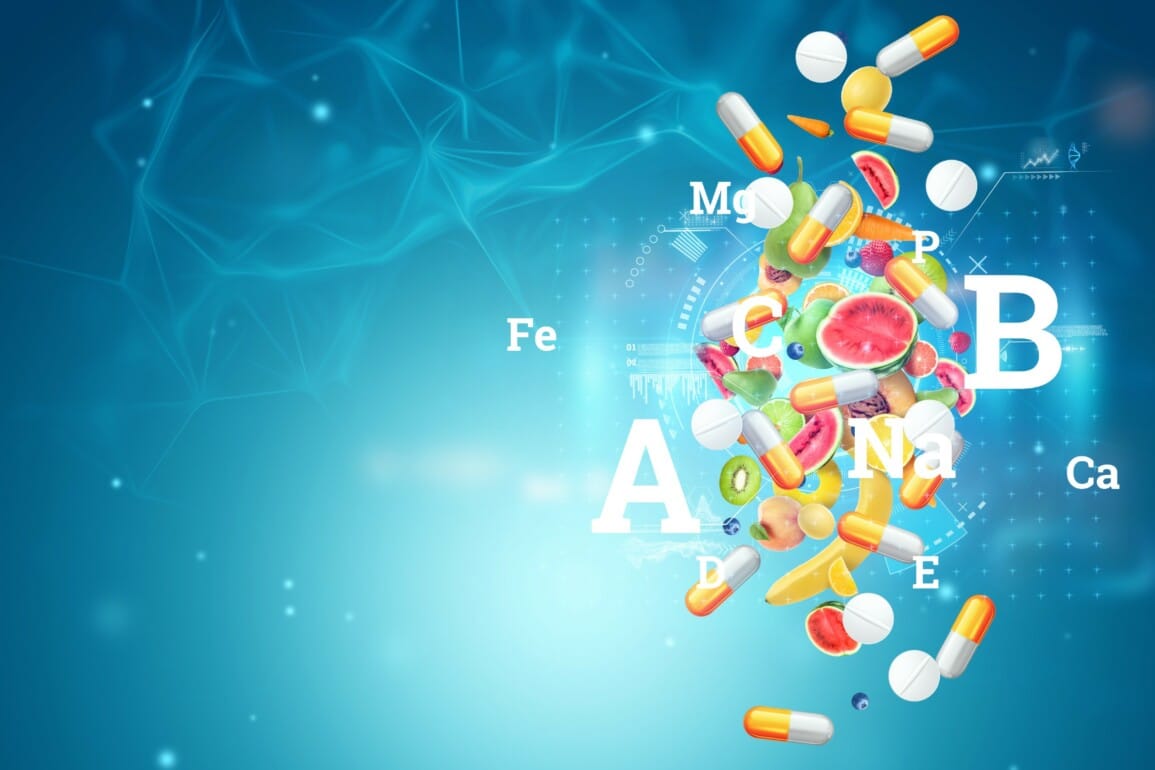Research into vitamins for sleep apnea is partly inspired by the belief that sleep apnea is a nutritional deficiency, or an issue worsened by lack of nutrition. Read on to learn whether there’s any reason to take supplements for sleep apnea.
Although studies are still ongoing into the issues which might cause or exacerbate sleep apnea, many experts believe certain supplements could reduce some of the symptoms of this condition.
We already know there’s a close connection between sleep and diet. Some of the foods or drinks you consume can disrupt your sleep pattern (such as anything featuring caffeine).
At the same time, some supplements can assist in reducing sleep problems, by counteracting the side-effects of various nutritional deficiencies and their influence on the body.
Today, we’re going to be answering the question: is sleep apnea a nutritional deficiency we can rectify with the right vitamins? And more importantly, which supplements for sleep apnea are most likely to have a positive impact on your sleep?
Is sleep apnea a nutritional deficiency?
The idea sleep apnea may have something to do with nutritional deficiencies is a common one in many circles. Some pieces of research indicate people with sleep apnea usually do have lower levels of certain vitamins and minerals in their system, such as Vitamin D, and iron.
Studies also indicate low levels of specific vitamins can interfere with the circadian rhythm. Hence worsen the long-term complications of sleep apnea (like risk of heart disease).
Of course, everyone is different, so before you add the vitamins below to your routine, it’s best to speak to a doctor. While vitamins and supplements may be able to assist with certain symptoms of sleep apnea, it’s crucial to get a full treatment plan in place with a medical professional.
Let’s dive into some of the vitamins and supplements which may be useful for sleep apnea.
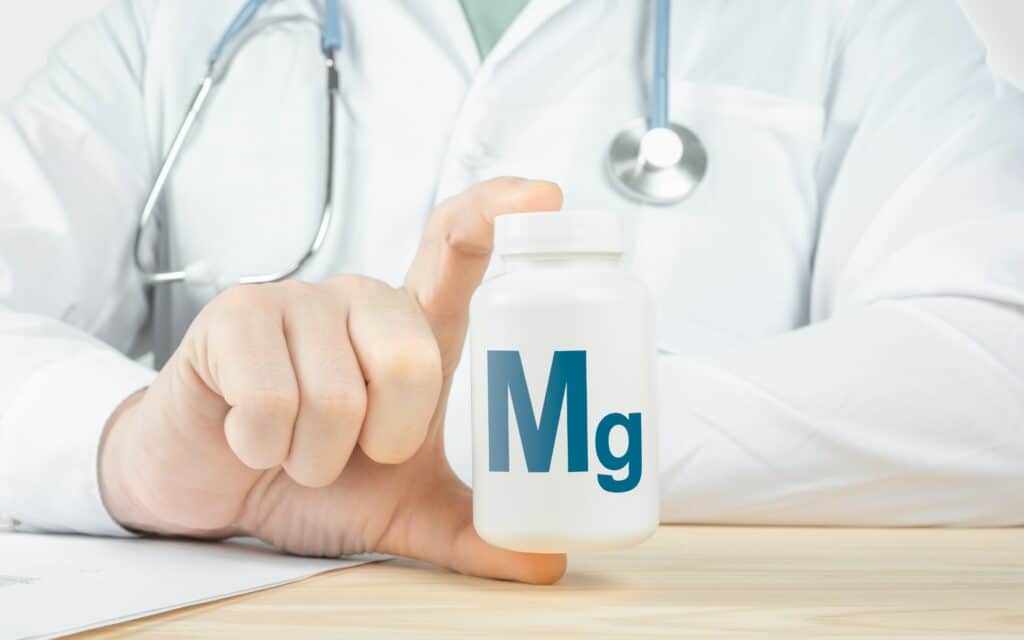
Magnesium and sleep apnea
Magnesium and vitamin D for sleep apnea are some of the most commonly recommended supplements among sleep experts. We know magnesium is a crucial mineral, essential for good brain, heart, and muscle health. Our bodies need a significant amount of magnesium to function well.
A diet with leafy green vegetables and nuts can be helpful at ensuring you get the right levels of magnesium, though some people may need to consider supplementation.
Magnesium can assist with insomnia and sleep problems in a multitude of ways. First, the substance helps to promote GABA production, which helps the brain to power down effectively at night. GABA decrease the activity in your nervous system by minimizing feelings of stress and anxiety, which can help your sleep pattern.
Magnesium can also assist with relaxing various muscles throughout the body. This can reduce the risk of obstructive sleep apnea, where tightening muscles in the neck can make issues worse. The link between levels of magnesium and sleep apnea is strong in the existing research.
However, magnesium isn’t a cure for sleep apnea on its own. While magnesium can help with some of the inflammatory factors contributing to sleep apnea, it’s important to still consider the use of a CPAP machine and similar treatments.
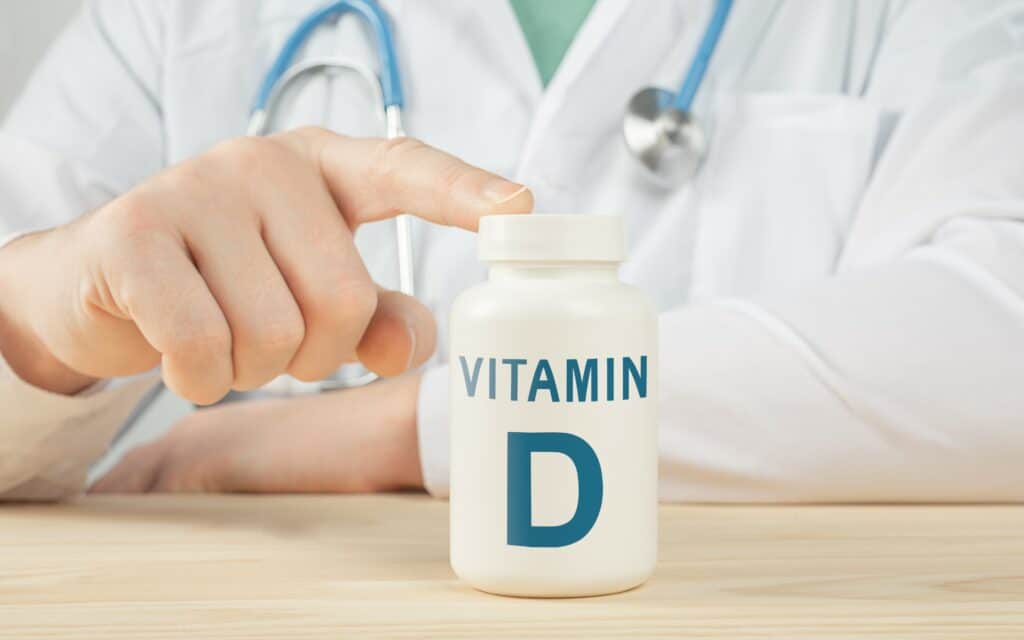
Vitamin D and sleep apnea
Vitamin D and sleep apnea go hand-in-hand in many research circles today. Experts now believe consumption of vitamin Dmay be essential to delivering effective treatment for sleep apnea, because it’s extremely useful at improving sleep quality.
Vitamin D can improve how quickly we get to sleep, how much sleep we have, and even the quality of sleep we’re able to achieve. Studies have even shown vitamin D deficiency can be linked to shorter sleep duration and lack of sleep.
Since poor sleep quality can make sleep apnea symptoms worse, it makes sense taking vitamin D would help to tackle the issue for patients.
Several studies also show a direct connection between vitamin D deficiency, and the risk levels a person has for sleep apnea. Lack of vitamin D can also affect the severity of sleep apnea, with lower levels often linked to more severe cases of OSA.
Experts now believe a comprehensive treatment strategy for sleep apnea should include both the use of CPAP machine technology, and Vitamin D supplementation. Notably, vitamin D is also responsible for activating various components in the human body responsible for the circadian rhythm, which means it can influence your standard sleep-wake cycle.
Sunlight is generally the best place to find vitamin D. Exposure to the sun can help the body to produce its own vitamin D. However, you can also find this substance in various foods like fish oils, egg yolks, and specially fortified foods.
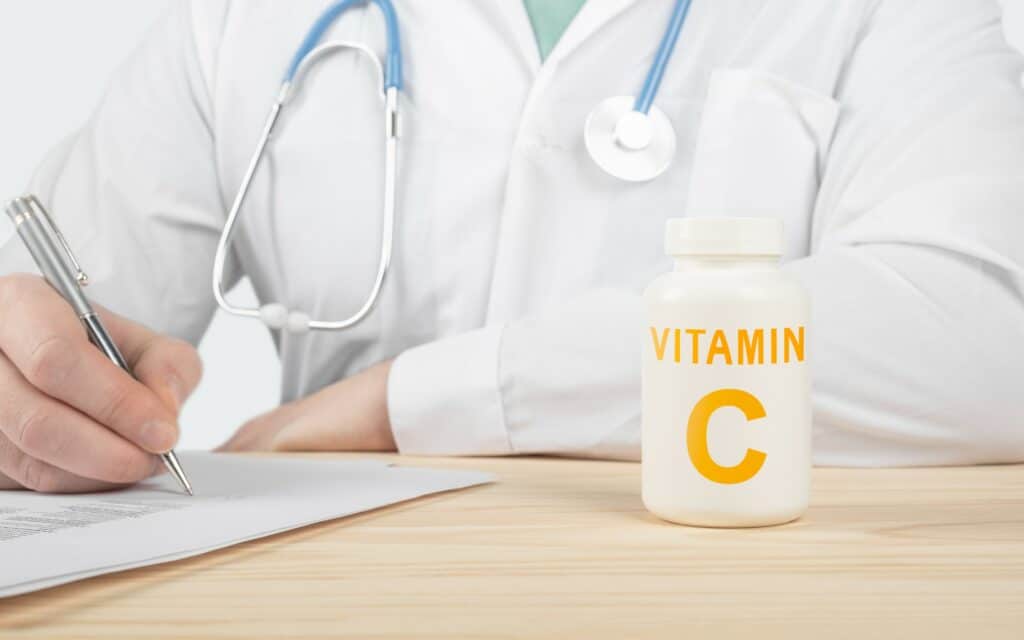
Vitamin C for sleep apnea
Vitamin C is one of the better-known vitamins on the market today, and something many of us associate with strong immunity and antioxidants. This Vitamin is important for cardiovascular health, and it’s responsible for supporting the body’s production of collagen for healthy skin, teeth and bones.
Experts now believe vitamin C could be a critical tool for the treatment of various sleeping conditions, including sleep apnea. Studies indicate vitamin C combined with vitamin E can reduce episodes of obstructive sleep apnea, by minimizing the interrupted breathing cycles.
As an added benefit, vitamin C can also help individuals with fighting against the various health risks associated with sleep apnea, like heart disease. People with untreated sleep apnea are more likely to experience obesity, high blood pressure, and other cardiovascular issues. Vitamin C can help to improve endothelial function in OSA patients, reducing the stress on the heart.
Low levels of vitamin C is frequently connected to shorter sleep duration and similar problems with insomnia. To improve your chances of a good night’s sleep and fight against issues from sleep apnea to restless legs syndrome, aim to add various sources of vitamin C to your diet. Citrus fruits are a good choice, as are broccoli, brussels sprouts and spinach.
Vitamin B1 for sleep apnea
B vitamins in their various forms can have a multitude of positive effects on the mind and body. For instance, vitamin B1 and B2 are essential for our bodies to convert food into energy. They’re also essential for the production of the sleep hormone, melatonin.
Vitamin B1, snoring, sleep apnea, and a number of other issues have been linked by scientists over the years. In elderly people, the supplementation of vitamin B1 for sleep apnea (thiamine) has been proven to be effective at reducing fatigue and improving nocturnal patterns.
You can find vitamin B1 in various food sources, including whole grains, leafy green vegetables, eggs, and various forms of meat.
Vitamin B12 for sleep apnea is another common consideration among a lot of researchers. Vitamin B12 is essential for the production of red blood cells and nerve cells. Although research into sleep apnea and vitamin B12 deficiency is still ongoing, some studies suggest B12 issues can cause sleep disruption and shorter sleep times. These issues often make apnea worse.
Aside from Vitamin B1 and B12, it’s also worth looking into vitamin B6. This substance can help you to achieve more deep sleep and assists with the production of melatonin and serotonin – both essential for peaceful sleep.
Food sources of vitamins B6 and B12 often include bananas, carrots, potatoes, spinach, and eggs. You can also find B12 in meat, fish and cheese.
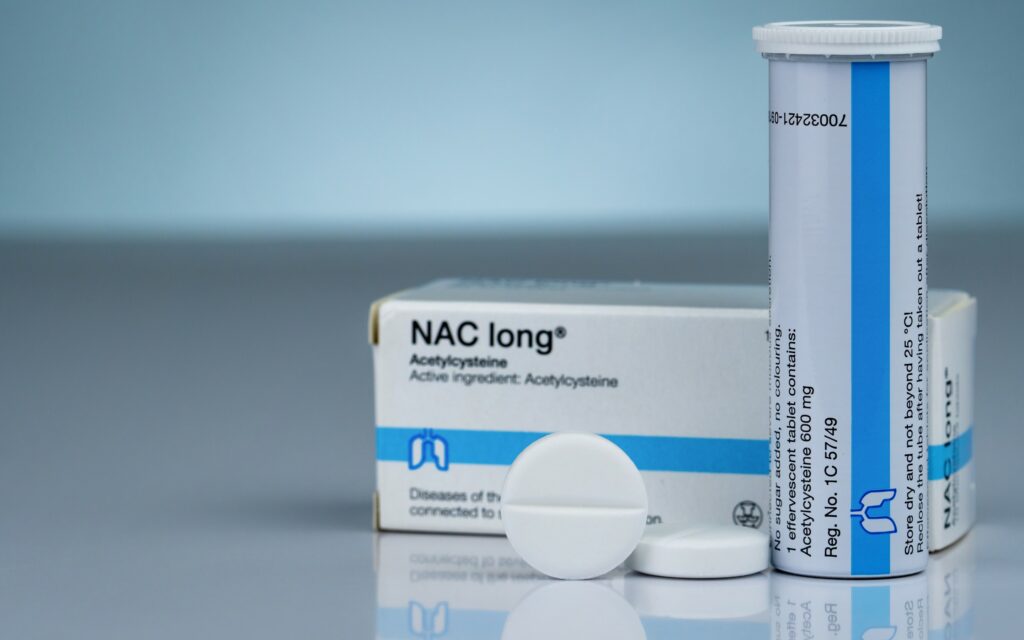
NAC (n-acetylcysteine) for sleep apnea
Research into antioxidants for sleep apnea, like NAC, is revealing some interesting insights. NAC for sleep appears to be a good choice for the therapeutic treatment of obstructive sleep apnea syndrome. NAC reduces snoring duration and troublesome breathing.
According to experts, NAC sleep supplements are valuable because of their ability to fight off free radicals. Too many free radicals can lead to a wide range of symptoms, including inflammation throughout the body. NAC for sleep apnea is a well-tolerated treatment, which can also help to moderate mucus secretions and make it easier to breathe at night.
As well as helping to minimize inflammation and other common problems, NAC for sleep can also help to loosen thick mucus. This is beneficial in people who suffer from chronic obstructive pulmonary disease. Mucus can also make a potential sleep apnea much worse.
Like most supplements for sleep apnea, further research into the benefits of NAC is still necessary. That said, many experts believe this could be a risk-free way to minimize symptoms.
What vitamin deficiency causes sleep apnea?
Notably, there still isn’t enough research available in the sleep landscape to determine for certain whether a specific vitamin deficiency is partly responsible for sleep apnea. However, research into the question, “Do any supplements help sleep apnea?” is promising.
While certain supplements and vitamins may not cure your sleep troubles completely, doctors are beginning to experiment with different kinds of natural treatments for sleep apnea. Vitamins for sleep apnea are offered as an accompanying therapy to CPAP machine usage.
Other substances which may be beneficial for sleep apnea include Vitamin E, an antioxidant capable of maintaining healthy cell function. Vitamin E improves immune health, and helps to protect important sleep-related hormones. Some studies indicate people with vitamin E deficiencies are more likely to have sleep apnea.
Always speak to your doctor before starting a new sleep apnea treatment. Sleep apnea is a multifaceted condition, which needs a broad approach. Vitamins for sleep apnea could be a valuable addition to addition to improving your nightly breathing!
Siestio. Sleep Matters.
Now read these:
—Does stress cause sleep apnea?
—Menopause and sleep apnea
—Does sleep apnea lower libido?
—Sleep apnea and nightmares
—Does PTSD cause sleep apnea?
Medical disclaimer
You must not rely on the information provided on our website as an alternative to medical advice from your doctor or other healthcare professionals. For more information read our full disclaimer here.

